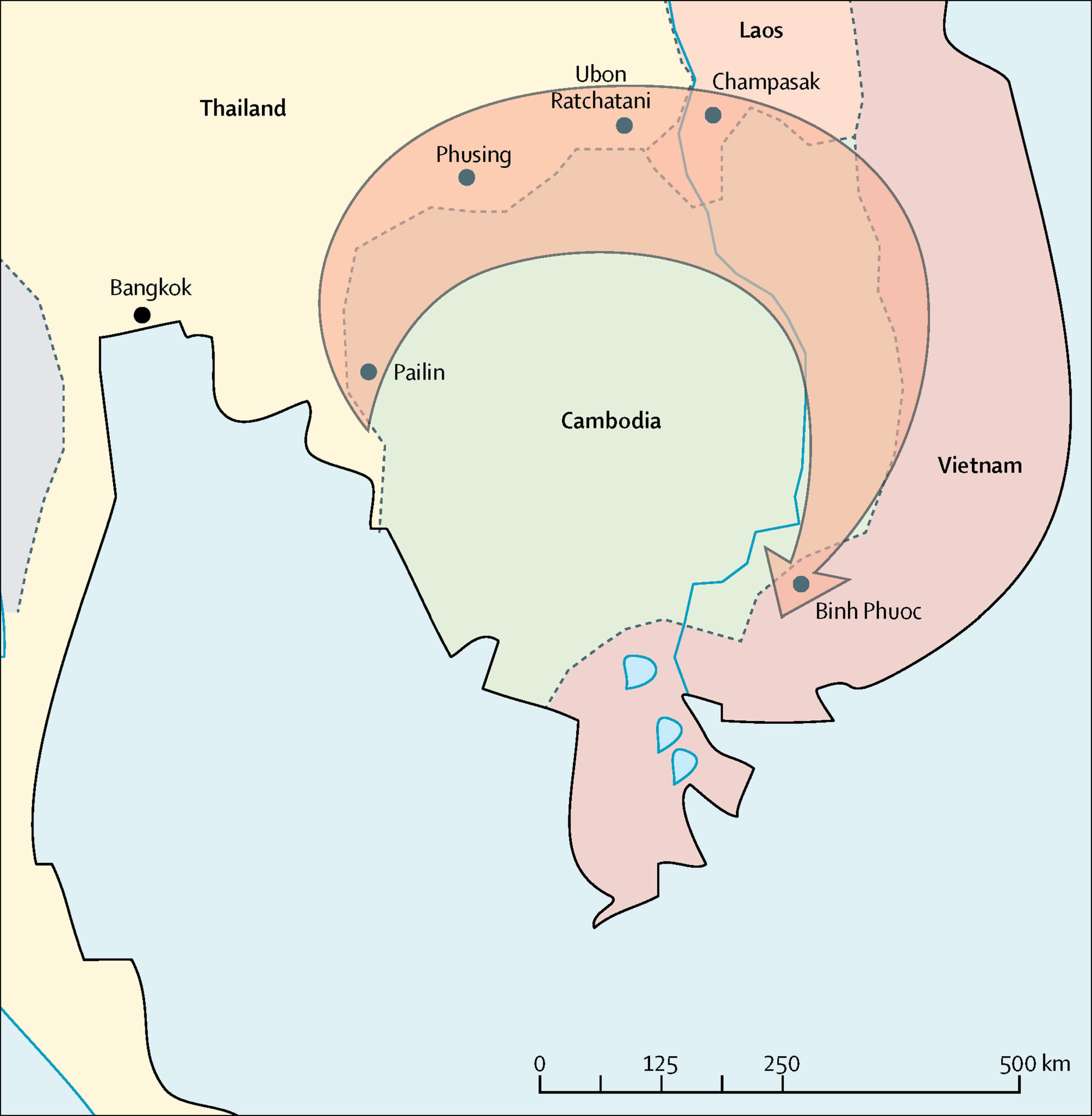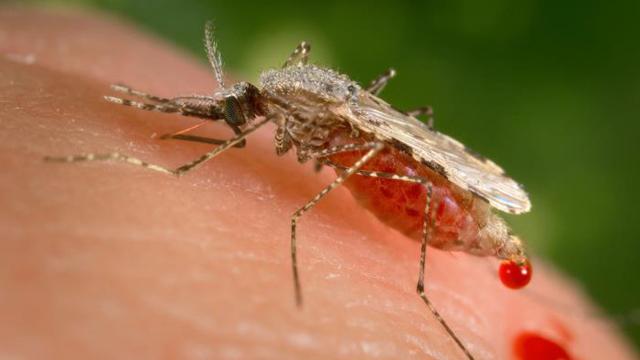In a disturbing development, a newly-mutated strain of drug-resistant malaria has spread into Vietnam, complicating efforts to contain the the mosquito-borne virus in Southeast Asia and potentially posing a global threat.
Image: AP
Like bacteria, malaria is adapting to our medicines. Drug resistance is a growing problem for malaria treatment, with fears that the disease could one day no longer be treatable with the current crop of pharmaceuticals.

Map showing the spread of “super malaria.” (Image: The Lancet)
A particularly problematic strain of malaria, known as PfPailin, is now spreading in Southeast Asia. This so-called “superbug” cannot be treated with first-line anti-malarial drugs. The strain emerged a few years ago in Cambodia, and has since spread to Thailand and Laos. Now, as a team of experts point out in a letter to The Lancet, the drug-resistant strain has spread from Cambodia into the Mekong sub-region of Vietnam, where infected patients are experiencing “alarming rates of failure”.
In southeast Asia, drug treatment failure rates (failure meaning that drugs are ineffective at curbing the effects of malaria, such as fever, mild jaundice, organ problems, anaemia, seizures, coma, and in the most severe cases death) are now approaching 60 per cent. The World Health Organisation claims that 1.5 million people are infected with malaria in southeast Asia annually, resulting in over 600 deaths.
It’s a heavy blow to the region, and a setback to efforts to control the disease. The first choice treatment of malaria involves a combination of two powerful anti-malarial drugs, artemisinin and piperaquine. This emerging strain has already developed a resistance to artemisinin, but in a “sinister development,” the disease has mutated yet again, acquiring resistance to piperaquine. The frightening potential now exists for malaria to be completely untreatable with current medicines.
“The spread of artemisinin resistance in Plasmodium falciparum [the parasite that causes malaria] and the subsequent loss of partner antimalarial drugs in the Greater Mekong subregion presents one of the greatest threats to the control and elimination of malaria,” write the authors of The Lancet letter. “The evolution and subsequent transnational spread of this single fit multidrug-resistant malaria parasite lineage is of international concern.”
The prospect of this drug-resistant strain spreading into Africa is particularly scary. It’s the continent from which malaria emerged, and where Anopheles mosquitoes, the insect responsible for spreading the disease, are plentiful. Currently, 92 per cent of all malaria cases are in Africa.
The World Health Organisation estimates that 212 million people are infected with malaria each year around the world, and that close to 430,000 people died from the disease in 2015. The majority of cases involve children under the age of 15.
Drug resistance, whether it be to malaria, bacteria, or fungi, is an emerging theme in the first two decades of the 21st century. Though much of the world’s attention is centred around problems such as climate change and our increasingly destabilised geopolitical world, it’s clear that we should be paying equal attention to microscopic organisms with the potential to do just as much harm.
[The Lancet, BBC, AP]
